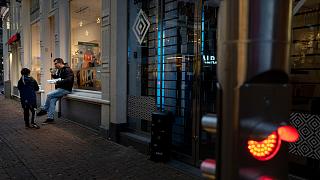The Hague: Despite rising Covid-19 cases, the new Dutch government has lifted some of the current lockdown measures by reopening schools and non-essential stores, while keeping cafes and restaurants closed.
The announcement was made by the newly inaugurated fourth cabinet of Prime Minister Mark Rutte during their first press conference on Covid-19 in The Hague Friday, reports Xinhua news agency.
After opening the primary and secondary schools January 10, all educational institutes can reopen starting from Saturday, including universities.
In addition, all restrictions on sports were lifted, although no audience is allowed to watch.
Non-essential stores are also allowed to reopen until 5 p.m. and essential stores until 8 p.m. Contact professions such as hairdressers can also open their doors again.
Rutte said that despite increasing social pressure to release all measures, the catering industry, the events industry and the cultural sector are not yet allowed to reopen.
“I understand very well that it feels completely unfair after all those long months of closure and all that effort to open safely,” he said.
“It is simply not possible all at once.”
Out of fear for the rise of the Omicron variant in the country, the previous caretaker Dutch government had introduced a lockdown since December 19, 2021.
In this lockdown, only essential shops like supermarkets, medical contact professions and car garages remain open and non-essential shops and the catering industry, restaurants, museums, theatres and zoos had to close their doors.
“Over the past two weeks, we have seen the number of infections rise to unprecedented levels, despite the lockdown,” Minister of Health, Welfare and Sport, Ernst Kuipers added.
“More than 30,000 new infections every day, more than 200,000 a week. Hundreds of thousands of people are at home and that can disrupt society.”
Kuipers also announced the easing of quarantine rules.
People who have recovered from Covid-19 no longer than eight weeks ago and for people who have had a booster, a third vaccination, no longer have to quarantine when they have been in contact with an infected person, if they have no complaints and have a negative test result.
The Minister also announced the expansion of the face mask advice.
Wherever it is not possible to keep a distance of 1.5 metres, the government recommends wearing a face mask. This applies also for busy outdoor public places such as shopping streets.
“We are taking one step to reopen our society,” Kuipers said.
